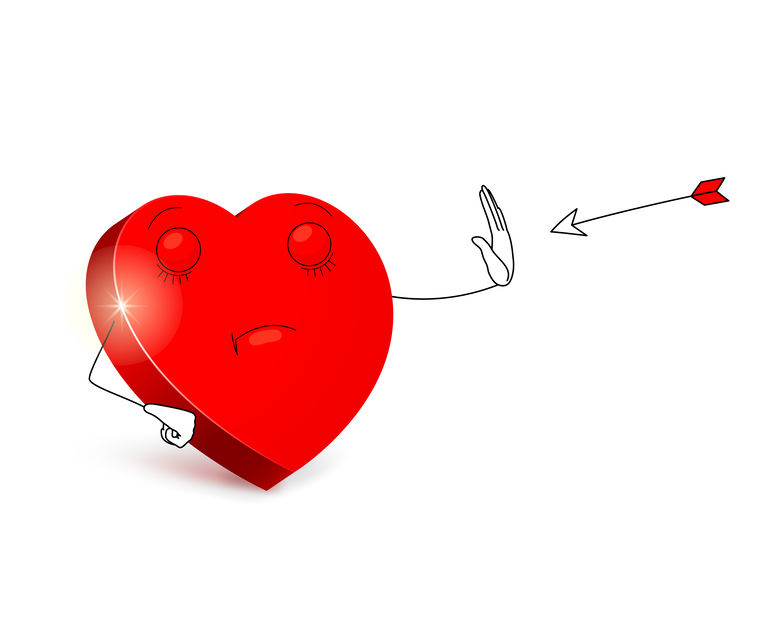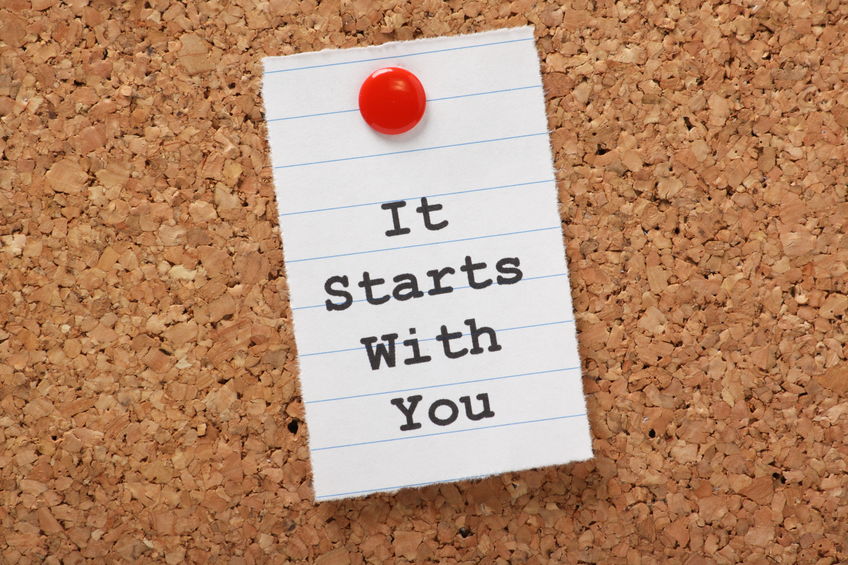Conflict = Honesty
- Marilynne Cahn
- Aug 28, 2019
- 7 min read
Updated: Jul 24, 2022

Conflict
In every conflict we experience, elements of defensiveness and betrayal are always present. Regardless of what the conflict might seem to be about, the minute we over-react, it is always because a deep-seated, unconscious belief is being betrayed.
To understand this, it is necessary to recognise that underpinning each strong, conscious belief we defend there is one that is diametrically opposed to it. Whether our conscious belief is negative or positive, it will be underlain by an opposing, equally strong belief.
In general, conflicts arise and persist because we focus on the obvious elements that seem to be causing our distress. It might seem that our body, mind, emotions, another person or other people are blameworthy, but the fact of the matter is that all conflicts are the manifestation of preexisting inner turmoil – turmoil that existed long before the present-day conflict.
Although there appears to be an external conflict that is causing our distress, our struggle really has little to do with anything or anyone external to us. Our real struggle is to defend ourselves against seeing something we don’t want to believe. In all cases, these unconscious beliefs are ones we don’t relate to in the least and are sure we do not hold.

Defensiveness
Alternatively, a conflict might betray an unconscious belief. Although there appears to be an external protagonist, the real struggle is, yet again, to uphold a deep-seated, pre -programmed belief. Whether a conscious or unconscious belief is being betrayed, on a conscious level our defenses are geared towards the same task. We are trying desperately to guard against seeing something about ourselves that we do not want to look at.
By exposing this preconditioning and the defensiveness it gives rise to, BreakThrough Steps put both our role and the role of the perceived protagonist into perspective. Because all conflicts entail the regurgitation of preexisting mental and emotional factors, it means that conflict always begins and ends in our own minds.
The external is only ever a catalyst and never the real cause of our own inner conflict. This means that the idea that someone or something is dis-empowering us is a false notion. If we can ever hope to live a healthy, natural, responsive, responsible life, then it is necessary for us to understand our defenses.
Defenses are emotional contractions; suppressing, rejecting, trying to change and deny certain emotions. Emotions are nothing but the movement of energies in relation to memory. This means that emotional contraction happens in relation to preconceptions or pre-programming that happened, usually in very early childhood.
When the desire to know the truth is underway, it is clearly an indication that, on some level, we understand we are living a lie. This means that the absence of self-knowledge denotes self-deception. This is the first thing we can understand about our defences: that they are lies. When we are defensive towards others, what we are trying to defend is always our self. Because this self is unnatural to us – not our true self – defences only ever serve the purpose of inhibiting self-knowledge.
This is another thing to understand about defenses. Defenses are always a state of blame and victim consciousness: false pride and false strength. We cannot blame anyone unless we consider ourselves a victim. We cannot believe we are a victim unless we have someone to blame. Before anyone else can lie to us or betray us, their behaviour is always preceded by our own self-deception. The fact that we focus on what they have done, rather than acknowledging our own role in the story, is an indication that we are unwilling to take responsibility for our own experience – however terrible it might seem.
Unwillingness
Unwillingness means the absence of will. Will is something that can only be experienced through taking responsibility for ourselves and our experiences. Unwillingness or the absence of will, is another aspect of defensiveness.
If we are committed to uncovering the Truth, then will is necessary, as is strength of character. To withdraw our focus from the behaviour of the other and focus on our own role in any story of conflict – be that conflict grieving for a loved one who has died; raging towards someone who has abused or disrespected us; or feeling sadness in the face of some hopeless-seeming situation – whatever the conflict, unless we are able to be conscious of our own role, the conflict will persist.

Responsibility
To take responsibility for our role in any conflict it is necessary to experience compassion towards the other or others and towards our self. Compassion is an opening of the heart and goes hand in hand with empathy; the capacity to feel what the other is feeling. But empathy is very difficult if we are in extreme defensive mode, because defensiveness is primarily the suppression and rejection of some aspect of our own emotional makeup.
As long as we believe that the other “makes” us feel, then we are giving responsibility for our emotions to the other person. This is a very heavy burden to lay on someone. But to understand this is to begin to understand any conflict. This is because ALL conflicts entail the superimposition of responsibility for our emotions onto another person
What we don’t want to feel we project onto others in blame. What we love to feel we project onto others in adoration – which is another form of blame. Any extreme emotion that we attribute to another person is an indication of defensiveness on our part.
Frequently we blame others for being emotionally absent. This is a very easy defence to understand. What we are saying is that the other person needs to express emotions towards us; and that if they don’t we feel emotionally deficient. This means that we are blaming the other for the very thing we are incapable of; being present to our own emotions.
All defences are an expression of our inability to be present to our self and life.
One aspect of defensiveness that is always at play in any conflict is the sense of being betrayed. We feel betrayed when a loved one dies. We feel betrayed when another person disagrees with something that we “know” to be true. We feel betrayed when happiness gives way to grief or some other undesirable emotion. We feel betrayed when anything goes wrong in our life. Basically, we feel betrayed by life.

Betrayal
Whenever betrayal is felt, there is a need to prove something: either that we deserve to be betrayed or that the other is wrong. And what has been betrayed is always one of our beliefs about life and self – an expectation. We expect others to betray us; we expect life to let us down; we expect that grief should follow happiness. On a superficial level we expect that others should be honest, that others should be respectful, others should, should, should…. Wherever there is conflict and defensiveness there are always a host of should: rules that we have for our self and rules that we have for others.
These preconceived rules, learned in very early childhood are what manifest in all conflicts. This means that all conflicts that give rise to defensiveness, also give rise to childish behaviour – not childlike, but childish. The degree of our defensiveness, lack of will, lack of true strength and lack of integrity is always a measure of our immaturity. And immaturity in adults is synonymous with unconsciousness.
In all conflicts there is a need to prove, and what we are trying to prove is that the expectations we have are right. In other words, we want to prove that the childish beliefs are correct. We want to prove that false identity we adopted in childhood is a truth. This is the case even when the beliefs are negative, because deep-seated, childish beliefs always have both a negative and positive aspect to them.
Defensiveness is always a sign of insecurity and the need to feel safe. But instead of finding constructive ways of communicating our need for safety, we demand that the other change; demand that they take responsibility for our experiences. In this way we perpetuate our own insecurity, because our defenses continue dictating that we are incapable of being responsible for our own self. No wonder the feeling of insecurity continues to be felt so strongly. No wonder the neediness to control our environment and those in it continues so strongly.
Therefore, the need for self-validation or to prove a point is always at the heart of any conflict. Because we are trying to prove something about our self – a belief we identify with – this need is always an indication of doubt. After all, we don’t feel the need to prove anything we’re sure about – such as our gender, that we are alive etc.
Conflict then is always about the need to prove, which is always an indication of self-doubt. Where there is self-doubt and battle to prove that we are right, there is always self-deception. Where there is self-deception and, simultaneously, the need for another person to behave “appropriately”, there is always hypocrisy.
When we find our self-fixating on the behaviours of the other or the unfairness of any situation, there is always a wake-up call happening. To heed it is the trick. One way of beginning to behave more consciously in conflict is to start to understand and absorb this formula.
Defensiveness = the need to prove = proof of self-doubt = self-deception = hypocrisy = false strength = false pride = ignorance. When conflict arises, be it towards our self or another, and we recall this simple recipe, it makes it far easier for us to withdraw blame and victim consciousness and behave in a more constructive, honest way.
By means of this simple process of deduction, it is possible to understand that all the conflicts of our life offer a potential wake-up call. It is also possible to understand that conflict is a very necessary part of coming into consciousness. The work we do in BreakThrough is to expose these underlying, core beliefs. Via the BreakThrough Steps process we investigate the dynamics of conflict with this goal as our focus.
Esther Veltheim











Comments